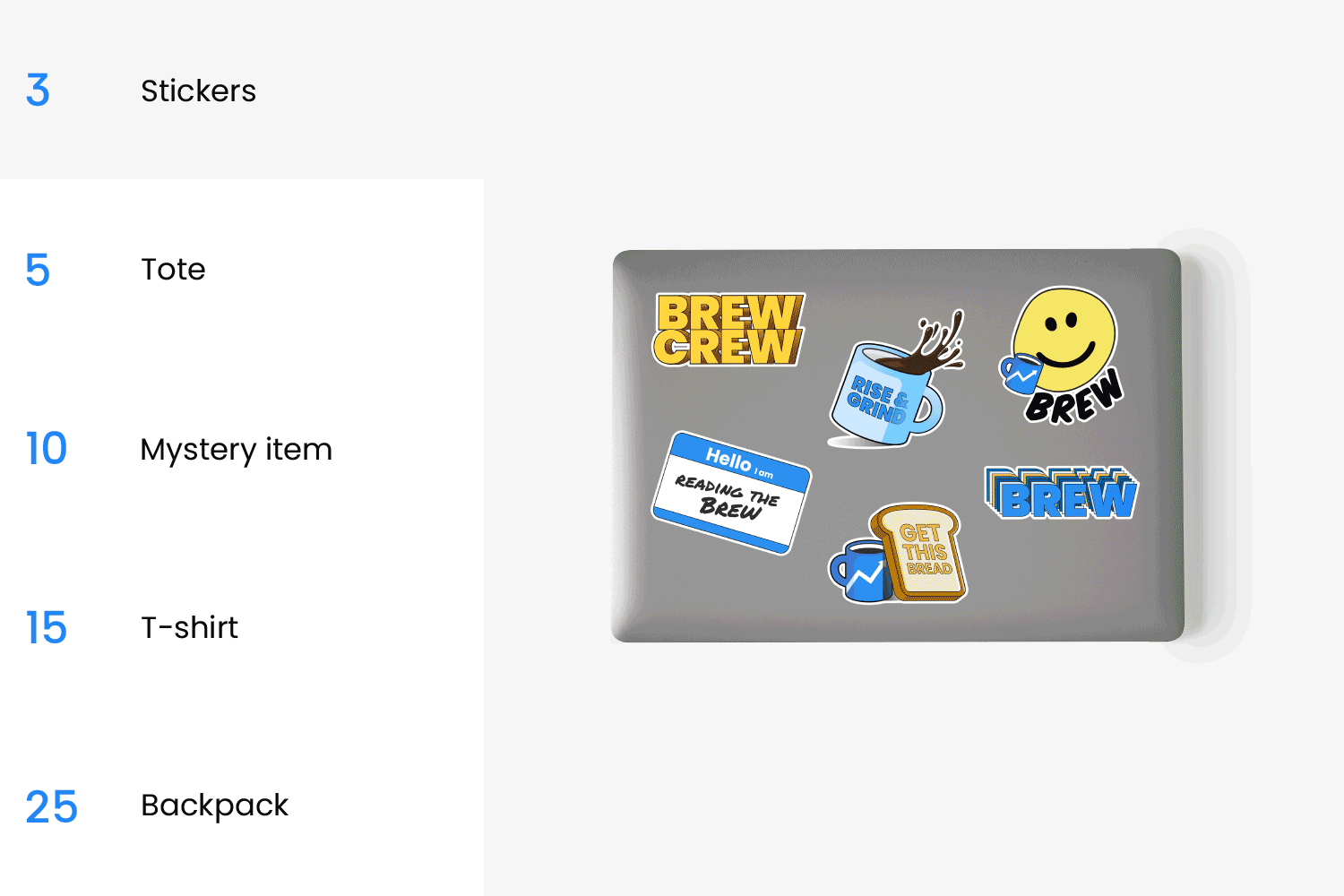|
It’s Monday. A giant feline face took over the Las Vegas Sphere to promote the upcoming Universal Pictures and Apple spy comedy Argylle—giving us a preview of what it will be like when cats take over the federal government.
In today’s edition:
—Katie Hicks, Ryan Barwick, Alex Vuocolo
|
|
Screenshots via @_maddieminla/TikTok, @hannahganshaw/TikTok, @meredithmlynch/TikTok
|
The quality of clothes—particularly women’s clothes—ain’t what it used to be. Items made from 100% natural fibers are hard to find, even at luxury prices. Many garments feel like they begin to deteriorate after a few wears, and somehow, prices still seem to keep rising.
It’s become a point of passionate discussion on social media, where consumers vent, deinfluence, look back at what some brands used to sell, and share tips on how to find higher-quality clothes via thrifting, mindful purchasing, and…going to Brandy Melville? Some TikTok creators, like Jennifer Wang and Andrea Cheong, have even dedicated their platforms to offering opinions on which items from certain brands are worth the money.
“All we have been seeing for the last 15 years is an acceleration of how shopping happens,” Thomai Serdari, clinical associate professor of marketing at NYU Stern School of Business, told us. “Now I’ve been seeing that that trend is being reversed, with people being willing to spend time researching things before they acquire them, making sure that both materials and the promises that the brands make are actually authentic and reliable.”
It’s only natural, then, that some brands have begun focusing their marketing messages on conveying the quality of their garments.
-
Artizia has sent items to influencers like Wang to review, and Gap is advertising its clothes as “affordable quiet luxury.”
-
Anthropologie seemed to push back on the trend, boasting in an email marketing message that its sweaters are “less itchy than vintage” finds.
Meanwhile, other brands that have built their reputations on the luxury-for-less concept, like Quince and Italic, have also adjusted their marketing to address customers’ shifting expectations.
“It seems like quality is at the forefront of consumers’ minds,” Antonieta Moreland, head of brand at Quince, told Marketing Brew.
Continue reading here.—KH
|
|
Eduardo Munoz Alvarez/Getty Images
|
New Jersey woke up this morning and got itself a privacy law.
The Garden State became the first state to pass comprehensive privacy legislation in 2024 after Gov. Phil Murphy signed Senate Bill 332 into law last week.
The law, which goes into effect next January, effectively gives New Jersey residents the ability to opt out of allowing companies to sell their “personally identifiable information.”
“Far too often consumer privacy is exploited without consumers knowing that their data is being shared and sold. This important legislation will help consumers reclaim control over their own personal data, and allow them the choice to share information that is personal to them,” Murphy, a Democrat, said in a press release.
The bill covers any company doing business in New Jersey that controls or processes the personal data of at least “100,000 consumers,” or any business that processes the data of at least 25,000 consumers and makes money from it. Like California’s consumer privacy law, a “sale” is defined as “sharing, disclosing, or transferring” data for money or “other valuable consideration,” which could apply to third parties like ad-tech vendors.
- There are some carve-outs, including “personal data processed solely for the purpose of completing a payment transaction.”
-
The law doesn’t include a private right of action, meaning enforcement will have to come from New Jersey’s Attorney General; residents won’t be able to sue companies over privacy infractions.
So what, no $%%# data now? Since California passed the California Consumer Privacy Act in 2018, 12 other states have signed their own comprehensive consumer privacy bills into law, including Texas, Delaware, Virginia, and Tennessee, according to Bloomberg Law.
New Hampshire is mostly likely next. Last week, the state’s legislature passed its own privacy bill, which is now awaiting the governor’s signature.—RB
|
|
Peter Dazeley/Getty Images
|
What do Crocs and Claire’s have in common? Both companies made significant comebacks in recent years after hitting a low point financially and culturally in the late 2010s.
“When you googled Claire’s, the only thing that came up was a bankruptcy,” Kristin Patrick, chief marketing officer for accessory and jewelry brand Claire’s, said during a session at the National Retail Federation’s annual Big Show conference. “Skip to two-and-a-half years later, and we were one of Fast Company’s Most Innovative Companies.”
Crocs CMO Heidi Cooley told a similar story: As recently as 2016, she said, the slipper-shoe brand was mostly known as the punchline in online memes. Now it’s become a cultural phenomenon all over again, with rising sales and a number of high-profile corporate and celebrity partnerships under its belt.
Customer insight: What’s behind these brand revivals? Both executives pointed to strategic shifts that emphasized allowing customer feedback, particularly from Gen Z, to guide decisions.
“They have to lead the way,” Patrick said. “Marketing today is very much about letting them lead, and the brand taking the [back seat].”
In concrete terms, she explained, that has meant sourcing ideas from customers about what Claire’s should sell and where it should operate. This has led the company to expand beyond its traditional operating channels, opening in locations ranging from Galeries Lafayette in Paris to Walmart to metaverse-based games such as Roblox.
“It’s about showing up where they are spending their time,” Patrick added.
Keep reading on Retail Brew.—AV
|
|
|
You can’t spell retail without AI. The retail future is here, and your biz needs to adapt. Ready to unlock the power of AI? We teamed up with IBM to show you how GenAI can boost your biz to heights unrivaled. Give your biz a power up.
|
|
Level up your career with these resources from our sponsors!
|
|
Morning Brew
There are a lot of bad marketing tips out there. These aren’t those.
Playtime: How some brands are working with Gen Alpha creators.
Makin’ a change: Advice on how to switch to a new website with minimal impact on SEO rankings.
Grow up: Tips on boosting an Instagram following.
|
|
Francis Scialabba
|
Executive moves across the industry.
-
Erin Condon, previously the interim CMO of CVS Health’s pharmacy and consumer wellness vertical, has been named permanent CMO.
-
Dara Nasr, a Twitter alum, is now VP of global sales at WeTransfer.
-
Vinay Shahani, who previously led marketing for Lexus, has been tapped as Nissan North America’s new senior VP, US marketing and sales.
|
|
ADVERTISE
//
CAREERS
//
SHOP
//
FAQ
Update your email preferences or unsubscribe
.
View our privacy policy
.
Copyright ©
2024
Morning Brew. All rights reserved.
22 W 19th St, 4th Floor, New York, NY 10011
|
|










